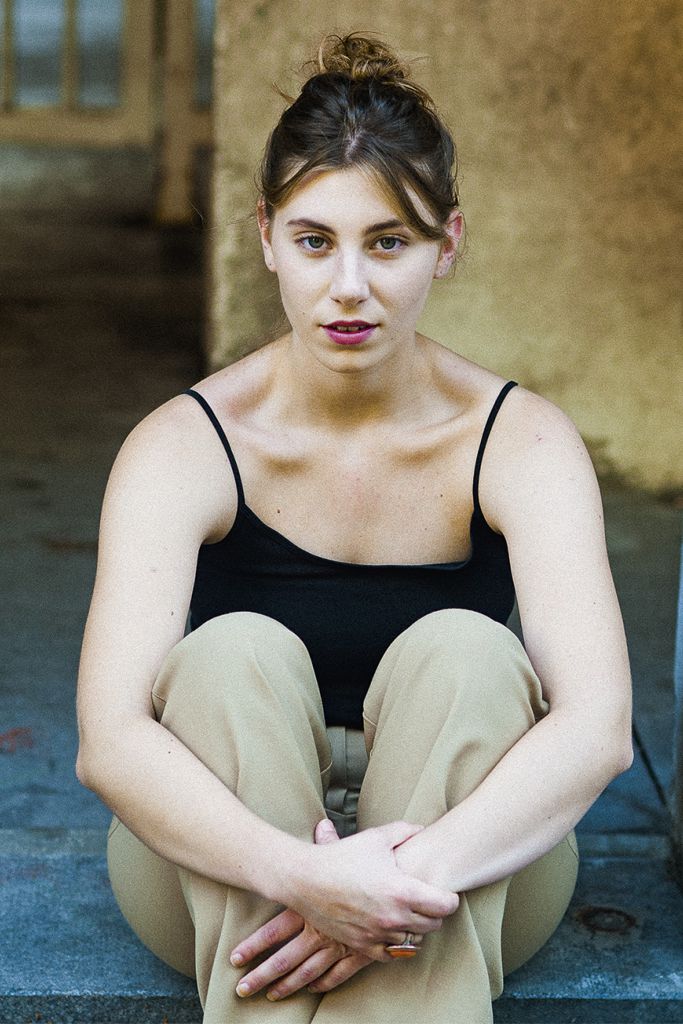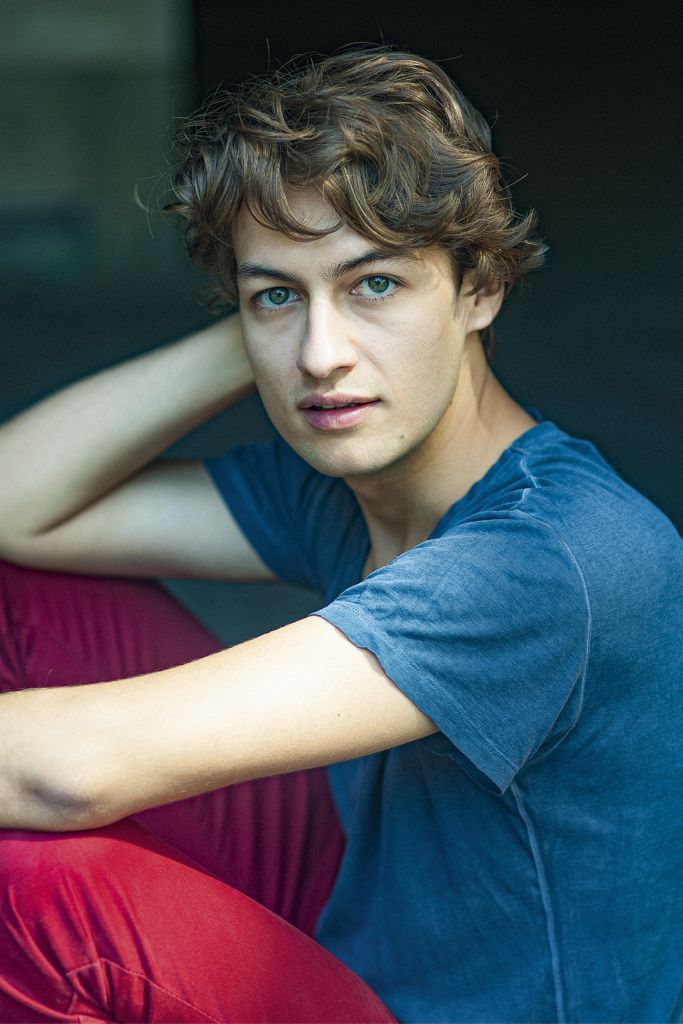4th-year Max Reinhardt Seminar students Johanna Mahaffy and Anton Widauer are fast approaching graduation. But the ongoing pandemic means huge challenges in terms of training and job-hunting.
“This whole exceptional situation has thrown my studies at the Max Reinhardt Seminar into total disarray,” says Johanna Mahaffy. “The pandemic abruptly interrupted our four-year programme, and it’s shown all of us just how fast you can suddenly be without training, work, or goals.” Ever since the COVID crisis began, teaching at the Max Reinhardt Seminar has been done online wherever it was more or less manageable. “On the one hand, the teachers have been very accommodating and block-scheduled some of our digital instruction, which suits me well,” says Anton Widauer. There’s much that can still be improved, however—and future graduating classes will benefit from what’s currently being learned as digital teaching continues.

The theatres are unable to programme and run normal seasons, with premières constantly being postponed and already-rehearsed plays needing to be refreshed prior to reopening. This also means that actors who already have employment just stay at their theatres, leaving virtually no open positions for acting graduates. “It was and still is my desire to find full-time employment at a theatre after I leave the Max Reinhardt Seminar,” says Mahaffy. Theatre managers, however, are now being forced to rethink things. “When they take on beginners at a theatre, they know that the people they’ve hired want to perform—but when a theatre has to spend its time redoing everything, the newcomers end up just standing there empty-handed,” Mahaffy explains. At the beginning of this year, Anton Widauer rehearsed Die Dreigroschenoper at the Theater in der Josefstadt. But he isn’t that phased by the prospect of lacking permanent employment after graduating from the Max Reinhardt Seminar: “My assumption is that I’ll be spending the next season doing freelance productions.” He also has his own theatre ensemble kollekTief to perform with—pandemic permitting.
A special challenge for the Seminar’s fourth-year students was this past November’s “Absolvent_innenvorsprechen” (AVO), which had to be done via pre-recorded video and with no audience present due to the pandemic. The AVO is a centrally organised audition event that gives acting graduates from German-speaking places of training the opportunity to present themselves to a professional audience with scenes and monologues performed on stage. It’s a major opportunity to get noticed by artistic directors and stage directors, who then invite some of them to audition at their respective theatres. For the students, this digital AVO was particularly challenging. “For me and several of my fellow students, the online AVO represented what’s probably the most pathetic possible way of introducing yourself to theatres. We had two weeks’ worth of rehearsals followed by a single day on which all of our scenes and monologues got filmed one after the other. I’d never have imagined being forced to conclude my acting studies like that,” remarks Mahaffy. “The magic of real encounters at the theatre just can’t be conjured up and captured on camera. It’s not like in film, which works with entirely different tools.” She does concede, however, that this onstage experience with cameras was a very important one for her in light of how theatre performances are often filmed live and how video often gets used on stage as a stylistic device. “Perhaps the online AVO will even end up reaching a broader audience, since every theatre can access it. It did cause one theatre director to take notice of me who probably never would’ve if things had been as they were before,” Mahaffy explains. Anton Widauer experienced the period surrounding the AVO as the most difficult one in his student career. The AVO took place during Austria’s November lockdown, which entailed abbreviated opening hours at the mdw and thus less time to rehearse for the AVO, less direct guidance from his teachers on account of simultaneous occupancy restrictions, and general uncertainty amidst changing COVID mitigation measures. “You have to play differently to the camera than you do in live theatre. And we’d hoped that our filmed performances were merely plan B, that it would be possible to do an in-person presentation for professionals later on,” recalls Widauer. But this hope went unfulfilled: “For our graduating class, my desire is for theatre heads to be open enough next season to consider us, too, so that we won’t end up with nothing.” Travel restrictions likewise make it more difficult to manage an audition. Mahffy experienced this herself: “There was this one situation where I’d been invited to an audition in Germany, but the entry requirements and the subsequent mandatory quarantine period made travelling there unfeasible—so I lost that chance,” Mahffy recalls. Getting through the present situation remains a huge challenge for everyone. “Apathy’s spreading everywhere you look. There’s a need to know why you’re doing what you’re doing. And at the moment, we’re seeing polite but negative responses to our applications. All graduates are having this experience right now, including graduates from degree programmes in other fields as well as trade apprentices,” says Widauer. In light of all this, his appeal to decision-makers is a clear one: “It would be important that they don’t forget about young people or about the future in their respective lines of work. Otherwise, they’ll end up asking themselves in a few years just what happened to those members of this generation who’ll have given up what they’d aimed for due to the crisis and the absence of opportunities to generate any resonance.”

“I’m just trying to stay positive despite this situation with all of its disappointments and refusals, because I know I’m powerless to do anything about the pandemic. We’ve been forced to simply deal with the here and now and take it all down a notch. And with this in mind, I am fond of reflecting on the ‘advantages’ that this phase brings with it. For instance, I’ve started painting again—and I’m also once again putting time into music,” says Johanna Mahaffy, looking on the bright side. Anton Widauer likewise sees some good takeaways from this crisis for one’s studies and for theatre work: “As an artist, you learn to be flexible. But acting programmes need to become more antifragile. And in this same vein, I think it might also be important to think about alternative forms of theatre and broader ways of interacting with audiences.” The two students do have things that they desire for their future. For Johanna Mahaffy, it’s “a place where I can do relevant theatre as part of an ensemble and try out new things, a place where the working process is more important than the final product. I’d also like to continue doing film and television acting, which actually has been possible despite COVID. But the most important thing to me is to be happy and aware of my privileges, and I’m now even more appreciative of the fact that I’d ‘normally’ be able to pursue a career that fulfils me like this one does.” Anton Widauer adds: “The pandemic has allowed me to recognise all the more that theatre is where I’ll find my home.” And he does believe that as soon as theatres can seriously look forward to resuming normal operations, everyone’s motivation will quickly return. “I was talking on the phone with a stage designer about a project planned for this summer. Even just talking about it with her and sensing our shared passion for theatre put me in an insanely good mood.”
In this spirit, let’s hope that our theatrical stages will come back to life soon so that we can finally be wowed by this year’s graduates’ talent and enthusiasm—and so that they’ll finally be able to enjoy the positive resonance that their abilities most certainly merit.

